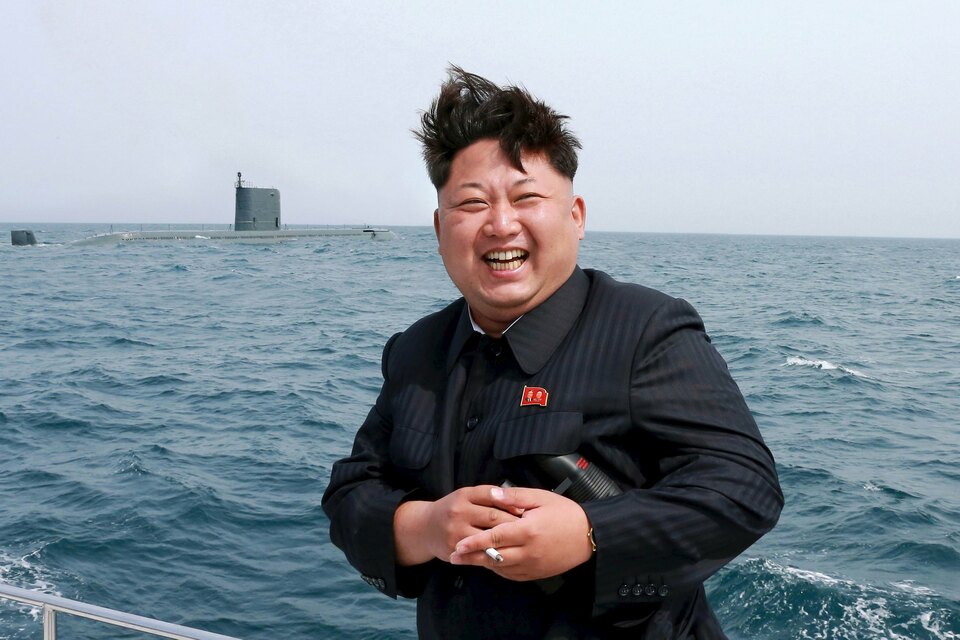Commentary: North Korea's Very Bad Year and China's Role In It

This hurt trade and tourism immediately, and while they are rebounding, the longer-term impacts are perhaps yet to be felt. After all, it simply adds to the long-held perception that North Korea is not a sound investment destination at a time when Pyongyang is taking other steps to promote itself as exactly the opposite.
As the Ebola policy ended, the consequences of a meteorological conspiracy began to take effect. North Korea is facing a drought; Pyongyang has already called it the most severe in a century. The dry weather has already caused short-term economic hardship in 2015, disrupting electrical output as well as human resource management this spring.
The majority of the DPRK's electricity comes from hydropower. The country is famously data shy, but it submitted to the United Nations that between 2005 and 2009, six thermal power plants and eight hydropower plants were producing electricity. The late winter and early spring is when snowmelts and runoff swells the rivers and should be time of relative electrical bounty in the country.
This spring, power cuts were instead more frequent and longer than in recent years. Foreigners resident in Pyongyang reported that even in the center of the capital city, they were relying almost 100 percent on fuel-run generators for power. (Usually they rely on far less than 50 percent.)
Meanwhile, rice-planting season in May and early June is a time when office workers are mobilized down to the farms to help with the backbreaking work, build solidarity with the farmers and get unwanted suntans. This year, North Koreans explained that they were "relying on a more labor-intensive method of planting" to compensate for the lack of water resources. The planting season appeared to last longer than most years, also.
This also has an economic impact: staff and managers from factories can disappear for days at a time, grinding production to a halt. Office staff not only have their normal work-duties to fulfill, but are also spending time in the fields, leading to over-work and exhaustion.
Finally, rice-planting season has passed, but as Chinese equities and perhaps soon global commodities markets continue an unprecedented nosedive (after an unprecedented boom), North Korea will suffer the man-made effects of capitalism and the herd mentality that takes over during any financial crisis.
More than 80 percent of investors in China are not institutional, but are rather retail, or individual, investors. These investors will be suffering losses, which in turn could lead to perhaps not a recession, but likely slower economic growth. Individual consumption will go down and smaller companies will face falling sales. In Northeast China, these are the sort of companies who both bring North Korean labor over the border and might be interested in setting up factories in North Korea.
Now, global commodity prices are taking a hit. Iron ore prices reached six-year lows recently and fell a spectacular 10 percent in a single day, though they did rebound afterwards. Iron ore probably accounts for something like 1 percent of North Korea's total exports. Other mineral and mineral fuels probably make up 30 percent to 40 percent of the DPRK's exports.
Global prices for key Korean exports such as coal and anthracite were already on a downward trend in 2015. It is reasonable to expect that prices for these commodities will continue decline on the back of China's stock market slump, offering even weaker earnings for North Korean companies.
No one is sure what's next for the Chinese economy. Pessimists talk about structural changes caused by changing demographics, as well as a real estate bubble complete with enormous amounts of bad debt on the books of Chinese banks. Many analysts, however, suggest China may experiencing only a short-term market correction.
But one thing is certain: as economic policymakers in Pyongyang watch the financial nosedive in their giant neighbor, they can only be thinking that this is not their year.
Andray Abrahamian is director of Choson Exchange, a Singaporean non-profit that trains North Koreans in entrepreneurship, economic policy and law. The opinions expressed here are those of the author.
Reuters
POPULAR READS
Rupiah Declines Against Dollar Amid Geopolitical Unrest
The Indonesian rupiah depreciated against the US dollar in Tuesday's trading session, driven by escalating tensions between Iran and IsraelNasdem Vows to Honor the Constitutional Court Ruling on 2024 Presidential Election Dispute
Nasdem's Willy Aditya commits to respect the Constitutional Court's ruling on the 2024 presidential election dispute.Jokowi Calls for Internal Meeting to Prepare for Economic Fallout from Iran-Israel Conflict
Minister Airlangga Hartarto announced President Jokowi's plan to hold an internal meeting on Tuesday to address the Iran-Israel conflict.Coach Shin Tae-yong Voices Outrage Over Referee Decisions After Indonesia's Defeat to Qatar
Indonesia's AFC U-23 defeat to Qatar leaves Garuda squad with 9 players, bottom of Group A.Knife Attack Against Bishop, Priest in Sydney Treated as Terrorism, Police Say
Police arrested a 16-year-old boy Tuesday after the stabbing at Christ the Good Shepherd Church.Popular Tag
Most Popular






















